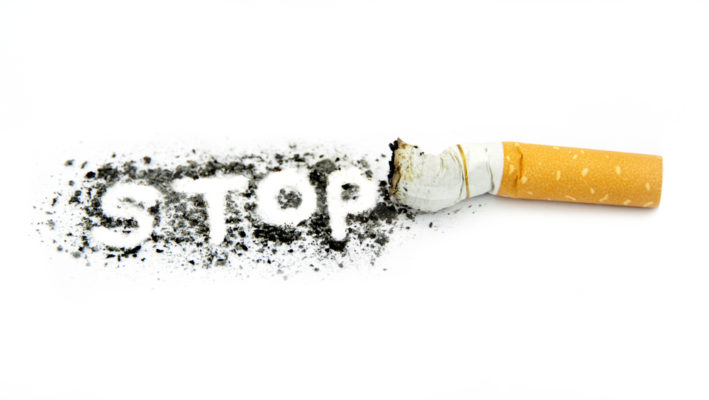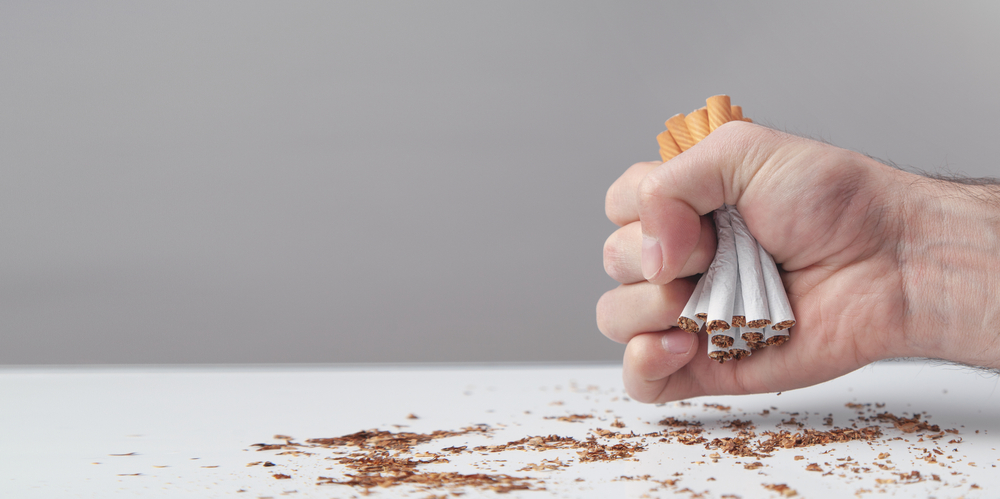It is much easier never to begin smoking than it is to quit the habit. But you can reduce your chances of CHD and cancer by quitting.
There are two avenues for you to follow. You may attend a clinic for group therapy or you may choose to stop smoking by yourself. Smoking clinics provide an environment which helps the smoker, but once the program ends the environment is no longer present. And without the environment the behavioural reinforcers that maintain abstinence may no longer be present. When the reinforcers disappear, the new behaviour often goes with them. For this reason, the number of individuals who are able to kick the smoking habit after attending a smoking clinic is small.
How can I Stop Smoking on My Own?
It is possible for you to stop smoking, but you must have an inner motivation, a positive attitude, and the desire to change your behaviour. You must recognize what needs to be done and be willing to do it, cheerfully and with enthusiasm; and find personal satisfaction in it. Also, be confident that you will achieve your goals.
You should first concentrate on the benefits of not smoking. Do not dwell on the unpleasant aspects of being deprived of your tobacco, but think about your health goals. Then you should examine your dependency on tobacco. Ask yourself why, when and where you smoke. Your answers to these questions will help you select the best approach to stopping smoking.
There are different approaches to help you change your behaviour. The self-monitoring program has proven successful for many. For each cigarette you smoke over a certain number, penalize yourself in some way Consider not allowing yourself to attend or participate in some pleasurable event, or force yourself to put away a specified amount of money as a fine. The goal is to decrease the number of cigarettes smoked each day or in a period of days.
For some individuals smoking is reinforced by being associated with pleasant environments such as parties and drinking. You may need to be especially aware of your smoking in such environments. The contract method may work for you. Sign a contract with a friend, spouse, or someone close to you, stating that they may penalize you in some way if they see you smoking. You probably will continue to smoke, but only when you are alone. The pleasure of smoking maybe so reduced that you will want to stop.

Does Physical Activity Help Quit Smoking?
An exercise program can help you curtail your smoking. There are several reasons for this. Smoking a cigarette temporarily elevates blood pressure, heart rate, and free fatty acids. The smoker feels relaxed after smoking. Rhythmic exercise has the same effect. In addition, the heaviest smokers are often the individuals least involved in physical activity. Upon exercising many of these individuals begin to take pride in their body and health. Exercise also helps prevent the weight gain associated with the cessation of smoking.
You may want to keep track of each cigarette you light up. The number will probably surprise you. At the same time keep a record of how much money you’re spending on cigarettes. Then keep account of how much you save when you cut back. Reward yourself with the savings.
There are other procedures used to stop smoking, and it is important to follow the one which works best for you. If you really are unable to stop smoking, do the following:
- Smoke fewer cigarettes
- Inhale less
- Don’t smoke your cigarettes all the way down (the first half gives you 40% of the tar and nicotine; the second half 60%)
- Select a cigarette with less tar and nicotine. Although the low-tar, low nicotine cigarettes may reduce your risk of lung cancer, don’t expect them to reduce your risk of CHD. Decreasing the tar and nicotine does not reduce the amount of carbon monoxide produced by smoking.

